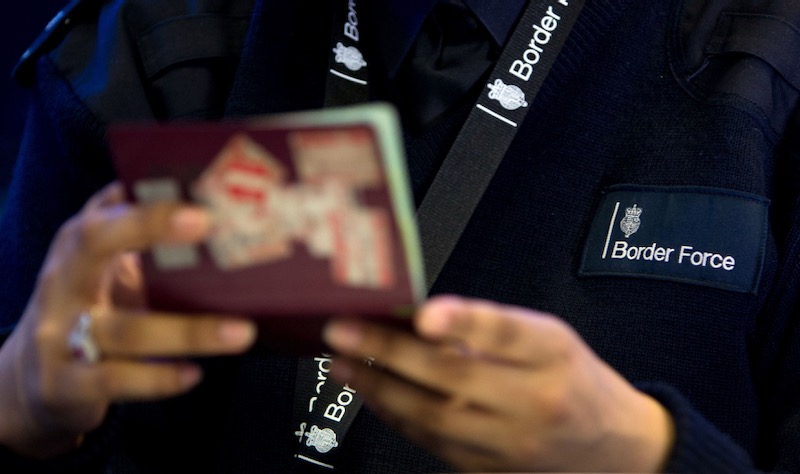“My head sometimes…I’m angry like this, I start shouting because I’m traumatised from detention….In the night if you sleep you hear officers open the door…”
“When I was released it was even difficult for me to cross a road because of mental torture for seven months.”
“I went in detention in my country. I was tortured, persecuted. You took me to detention again.”
These are the words of people who had been held in immigration detention in the UK. That is, they had been indefinitely incarcerated in prison-like conditions via the administrative decision of a civil servant for the purpose of immigration control.
At JRS UK’s offices in East London, we interviewed destitute asylum seekers with experience of detention. These snapshots of what we heard are typical of the whole. Detention had torn people from lives and families, or abruptly severed the hope they held of welcome and sanctuary in Britain. It had crushed people with a profound trauma that warped their physical and mental well-being, and injured the way they engaged with the world, and sometimes also their very sense of self. Its impact was long-term, continuing in some cases well over a decade later. It never really went away. Detention, as torture survivors repeatedly told us, was torture. More details can be found in our newly released report Detained and dehumanised: the impact of immigration detention.
I was horrified listening to the stories of people who had come here to seek safety and been treated in this way. We spoke to women and men, to people who had only just been released, and to people who had been in detention nearly 20 years ago. The experiences of those we spoke to are not unusual. Every year, the UK detains thousands of people for the purpose of immigration control. Last year, nearly 25000 people entered detention. Many, like those who share their stories in our report, have sought or are seeking asylum. Others have fallen foul of the UK’s labyrinthine, expensive, and inefficient visa system. Some are people who know no other home than Britain, as the so-called Windrush scandal brought to public attention.
This system of routine incarceration, if noticed at all, is often spoken of as an inevitable part of migration management. But it is really a very recent phenomenon; immigration detention was relatively little used in the UK until the late 1990s. The growth of the detention estate was an active political choice. It was accompanied in the early 2000s by a fresh government policy of detaining those who sought sanctuary here under the Refugee Convention, though subsequent high court decisions have made it more difficult for the government to detain people as they make an initial asylum claim. Detained and Dehumanised offers a window onto the modern detention estate, giving a voice to people’s experiences of detention over nearly 20 years. It reveals how, over that period, immigration detention has wreaked profound trauma and suffering.
Why do we as a society do this? The purpose of detention is ostensibly to facilitate forced removal from the UK, but most people detained are in fact released back into the community. As noted in the report, government ministers have referred to detention as a deterrent against breaking immigration rules. In other words, immigration detention functions partly as a hostile environment measure, deliberately making life unbearable for those without up-to-date immigration status. Thinking of this, it is hardly surprising that it should be described as “mental torture”.
The UK’s system of immigration detention is procedurally arbitrary and opaque. It is devoid of both love and justice. It tears apart communities. There is a vast body of evidence that it causes profound and indelible harm to human persons, to physical and mental health. And it serves no good purpose. We as a society have allowed ourselves to become persuaded that this is normal, inevitable. We have thus normalised cruelty and abject suffering.
Maybe we can do this in part because we don’t really see detention. Detention is disproportionately visited on already marginalised communities, and it happens behind high walls, normally erected at a distance from day to day life. My colleague, whose job involves reaching out to communities about the experiences of those we serve, tells me that many people only have a vague awareness of immigration detention. We turn away from the horror, and if anyone points it out to us, we shrug that it must continue, that there is no choice. Let us really look. If we really look and listen, we can see that this is not true. The use of detention for immigration control is a choice and it is the wrong one.
Now, this choice takes on a new inflection in light of Covid-19, because the pandemic has forced the release of large numbers detained. Though it is troubling that some remain in detention where infection can spread rapidly, it has been a long time since detention centres stood this empty. As lockdown measures ease, we may choose to re-detain people. But we don’t have to, and we should not do so. This is a moment to re-examine this brutal practice. We can end immigration detention.
Dr Sophie Cartwright is the Policy Officer at the Jesuit Refugee Service UK and authored JRS UK's report Detained and Dehumanised: the impact of immigration detention. She previously worked with asylum seekers in Glasgow, and has an academic background in theology.
JRS UK runs an outreach service to Heathrow Immigration Removal Centre.
Want to help? Write to your MP to ask them to support a time limit on immigration detention.



 Loading ...
Loading ...
What do you think?
You can post as a subscriber user ...
User comments (0)